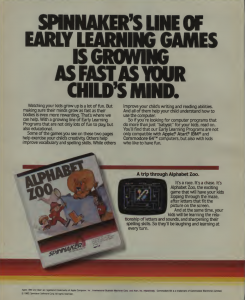In 1983, my boss, Dale Disharoon, designed a little game called Alphabet Zoo. My job was to write the Commodore 64 and Apple II versions of that game. Alphabet Zoo is a game for kids who are learning to read. The child uses a joystick to move a little character through a maze, collecting letters to spell words.
We did no user testing on this game until the very day we sent the final software to the publisher. On that day, we discovered that our target users (five year-olds) did not have the ability to use a joystick well enough to play the game. They just got frustrated and gave up.
We shipped anyway.
This game became a bestseller.

It was placed on a list of educational games recommended by the National Education Association.

So, how to explain this?
Some years later, when I became a father, I understood. My son was able to play a lot of games that were too hard for him because I operated the controls. I spoke to at least one dad who did exactly that with Alphabet Zoo.
I guess the moral of the story is: we don’t necessarily know the value of our own creations.

This brings up an interesting point, okay it brings up several. The first one is that being a dad is an amazing learning process full of surprises and crazy awesome moments when you are slapped with the realization that your kids are smarter than you are. With brings up the second point kids are crazy smart and will do whatever they have to do in order play a game. The third and file point is that we have no idea how the products we will create are accepted, or in other words there is no accounting for taste.
I wonder if the game was actually better because it required an adult’s presence, so they could help the child learn when needed (but with the child still in charge).
It was probably bought by a lot of parents who thought they could just leave the child alone with it, but ended up actively helping the child learn.
I guess that shows you have to use tacit knowledge and explicit knowledge to understand your stakeholder. In this case, children who have a limited understand of their own application of the product. I’d be interested to know if they took parents into account when they decided to ship.
[James’ Reply: We did not think about the parents at all.]
Nice trick! You created a game that was going to help babysit kids, but then caused a bonding relationship between the parent and child. Is that a bait and switch? 🙂
This is brilliant. I didn’t expect the outcome and I love it. The story and idea have incredible merit. Thank you, James. You always challenge my image of the world. And I’m a weirdo able to see a lot of variety. But you really spice it up.